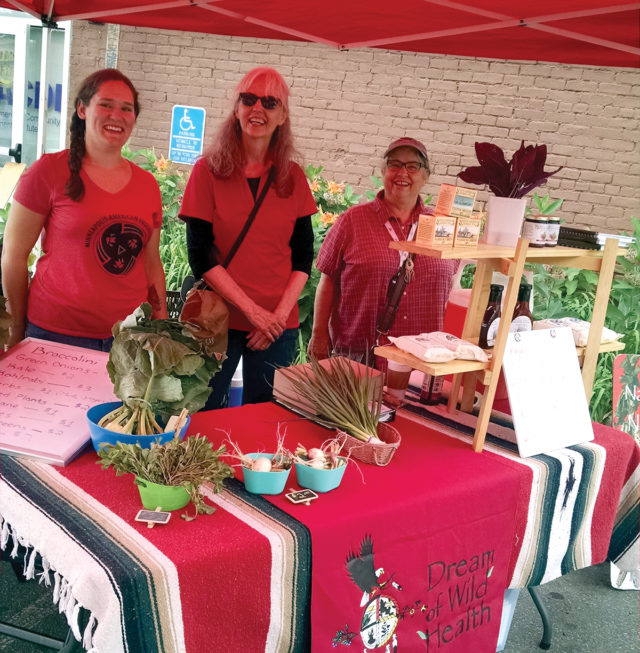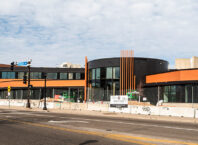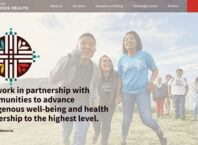
By Lee Egerstrom
For some, Dream of Wild Health (DWH) is viewed as an organic, indigenous food farm in Hugo, north of the Twin Cities metro area. Others see it as a food and health education group while still others see it as an engine for community building within the Twin Cities Native communities.
That’s a lot of hats to wear. But it also establishes the “Dream team” as being entrepreneurs at their core.
“Although we are located in Hugo, we primarily serve the urban Twin Cities area, especially the neighborhoods where Native families can be found in higher numbers,” said Diane Wilson, executive director.
Those areas are primarily on St. Paul’s East Side and the Phillips Neighborhood in south Minneapolis. The latter includes the American Indian Cultural Corridor where Dream of Wild Health has administrative offices, 1308 E. Franklin Ave., near where DWH had its original start.
One of the oldest non-profit 501(c)3 organizations serving the American Indian communities in Minnesota, Dream of Wild Health started out in 1986 as a transitional housing program in the Phillips Neighborhood for homeless and chemically dependent Native Americans. It was then known as Peta Wakan Tipi (Sacred Fire Lodge).
That housing program started Dream of Wild Health in 1998 in response to people wanting to be reconnected to their cultures, foods and medicines. Wilson and Jenn Hall (Leech Lake descendant), the DWH office manager, explained that evolution as they were setting up a DWH food stand at the Four Sisters Farmers Market in late June.
Connecting with traditional plants is important to urban residents’ health, they explained. And it is especially important for cultural understanding, added Hope Flanagan (Ojibwe), Wild Food educator with the program. She said language lessons are an important part of the young people’s training at the farm and in its programs.
Transitional housing programs were discontinued in 2011 with the retirement of founder Sally Auger, who still holds an emeritus board position with DWH. The organization’s changed its name to Dream to Wild Health a year later.
As part of the evolving mission and its entrepreneurial spirit, Peta Wakan Tipi purchased a 10-acre farm at Hugo in 2004. “The soil was sick,” Wilson said, needing “care and renewal.” Farming at Hugo started in 2007.
Watching from a distance was Cora Baker, a Potawatomi elder and seed keeper near the Wisconsin Dells. She, a great-granddaughter and a grandson passed along her seed collection of corn varieties, plant medicines, beans, squash, sunflower varieties and indigenous tobacco to Dream of Wild Health. The Hugo farm now preserves more than 100 varieties of indigenous seeds.
Farm operations produced more than 13,500 pounds of produce during last year’s growing season. Along with income from farm tours, the produce generated revenue covering about 10 percent of DWH’s operating budget. The rest of the group’s support comes from individuals, tribes and foundations.
Produce is sold at stands twice each week on Thursdays, at the Four Sisters Farmers Market, on the Franklin Avenue parking lot by Pow Wow Grounds coffee shop, and on Tuesdays at Midtown Farmers Market, 2225 E. Lake S.
Additional farm produce sales result from DWH selling community supported agriculture (CSA) memberships that it calls Indigenous Food Share (IFS) memberships. These buyers are families that want access to traditional foods and know where it comes from.
Wilson said DWH sells 25 full-share memberships and from 35 to 50 have shares to families that often parcel out some of the vegetables to other households. Full-shares ($525) receive a total of 16 weekly boxes of in-season vegetables suitable for a family of four. Half-shares ($270) receive eight boxes delivered every other week.
Beyond the Hugo farm, DWH also supports the East Side Indigenous Garden, near Harding High School in St. Paul, where participating families work together to raise similar indigenous and healthy produce.
A natural extension of these agricultural endeavors is the education mission of DWH. It has become large and is growing.
A DWH van transports young people from the inner cities to the Hugo farm. One program, honoring the seed collector, is Cora’s Kids for Native youth ages 8 to 12. Flanagan said that program encourages youth to learn about growing food, cooking and enjoying healthy foods, as well as become connected to their Native culture and language.
There are also a three-week program, Garden Warriors I, and a four-week Garden Warriors II session each summer (ages 13-18) that lead to a Youth Leaders group. The latter, Wilson said, trains participants in public advocacy and gives them an understanding of related “food sovereignty” issues.
These four programs involve about 60 Native young people from the metro area each year, Wilson said. In addition, DWH works with other groups on special visits and programming. The Children’s Defense Fund, for instance, has a July visit scheduled at the farm.
DWH also has a less intensive program with the Bdote Language Immersion School, the Dakota and Ojibwe language school (3216 E. 29th St.) for students from Kindergarten through Grade 6. This brings students to the farm for two-day sessions, Wilson said.
Reaching students and their families improves healthy lives and builds communities. Working with other organizations is another entrepreneurial strategy for reaching more people, building base and building community.
Beginning in Fall 2016, DWH partnered with several groups to begin an Indigenous Food Network in the Phillips Neighborhood. “We identified our core priority a providing healthy, indigenous foods and meals to the youth in our programs and schools,” Wilson said. “The system is spiritually based and includes education and curriculum to also help youth learn about the history and value of our indigenous foods.”
That system expanded in Fall 2017 with a pilot program providing healthy meals from the Gatherings Café for Division of Indian Works’ afterschool program and for elders and Native teachers making presentations for the program.
Wilson said the collaborating groups are now exploring how to expand the program to school lunches and daycare programs. And, it is looking for ways to keep food revenue within the community rather than shipping it off to large supermarkets. This should also lead to more jobs in the community, especially for youth.
Partners in the Indigenous Food Network also include: Gatherings Café at the Minneapolis American Indian Center, Division of Indian Works, Na-way-ee Center School, Bii Gii Wiin housing project, Native American Community Development Institute, Native American Community Clinic (NACC), Mashkiiki Giitigan Urban Farm (Medicine Garden), Indigenous People’s Task, Little Earth of United Tribes, Bdote Language Immersion School, Wicoie Nandagikendan Early Childhood Urban Immersion Program and the YWCA Strong, Fast, Fitness program.
To learn more about about Dream of Wild Health, or for ways to donate money or time such as Volunteer Fridays, contact www.dreamofwildhealth.org.






